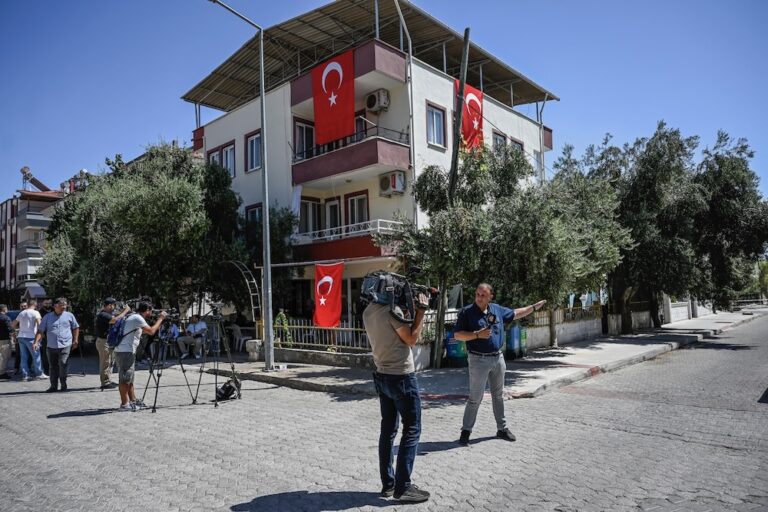(RSF/IFEX) – RSF has expressed shock over a one-year jail sentence handed down to former radio station director Sabri Ejder Öziç. The journalist, a former head of Radyo Dünya in Adana, southern Turkey, was sentenced on 30 December 2003 for “insulting and mocking Parliament”. He appealed the sentence and has not been imprisoned. “We are […]
(RSF/IFEX) – RSF has expressed shock over a one-year jail sentence handed down to former radio station director Sabri Ejder Öziç. The journalist, a former head of Radyo Dünya in Adana, southern Turkey, was sentenced on 30 December 2003 for “insulting and mocking Parliament”. He appealed the sentence and has not been imprisoned.
“We are shocked by this sentence, which is utterly disproportionate. We remind you that under international norms, prison terms should not be imposed for press offences,” RSF Secretary-General Robert Ménard said in a letter to Justice Minister Cemil Cicek. “Turkey, which seeks to join the European Union in the near future, should adopt this principle and stop taking abusive legal action against journalists who criticise the state or its institutions. What is the point of introducing progressive legislative reforms if they are applied so arbitrarily by local judges?” Ménard asked.
The Adana Correctional Tribunal sentenced Öziç over remarks he made on the air on 24 February during his radio programme “Captain’s Log”. The journalist, who is also an activist from the pro-Kurdish party Ozgur Toplum, criticised the Turkish government’s decision to allow foreign troops onto Turkish soil and to send troops to Iraq. Öziç’s programme aired on the same day the government decision was submitted to Parliament for approval.
The court acted over the following statement from Öziç’s broadcast: “Our Council of Ministers allows American soldiers onto our soil; our soldiers will be able to enter Iraqi territory. (. . .) A war has been declared against terrorism in the world, but it is an illegitimate war. If illegitimate wars are terrorist acts, then this [decision is] also a terrorist act. If permission to send troops to commit terrorist acts were to be approved by Parliament, then this Parliament would also be a terrorist entity.”
Prosecutor Erten Tamoglu took the view that describing Parliament as “terrorist” did not constitute legitimate criticism, but rather an “insult to a state institution”, an offence that carries a minimum penalty of six months in prison under Article 159 of the Criminal Code.
Article 159, which has been the basis for many abusive prosecutions of journalists for “offences against the state and state institutions and threats to the indivisible unity of the Turkish Republic”, was amended in 2002 and 2003 as part of democratic reforms undertaken with an eye toward the country’s efforts to join the European Union.
The length of prison terms provided for under Article 159 has been reduced from one year to six months and criticism not intended to “ridicule” or “insult” state institutions is no longer subject to prison sentences. However, individual judges’ interpretation of alleged “criticism” remains subjective and several journalists were prosecuted under this article in 2003.
RSF notes that many restrictions to press freedom still exist in Turkey. Journalists who dare to criticise state institutions or discuss taboo subjects, such as the Kurdish question or the role of the army in the country’s political life, are often censored, prosecuted and subjected to heavy fines. At least five journalists are currently imprisoned for having expressed their opinions in the course of their work.


